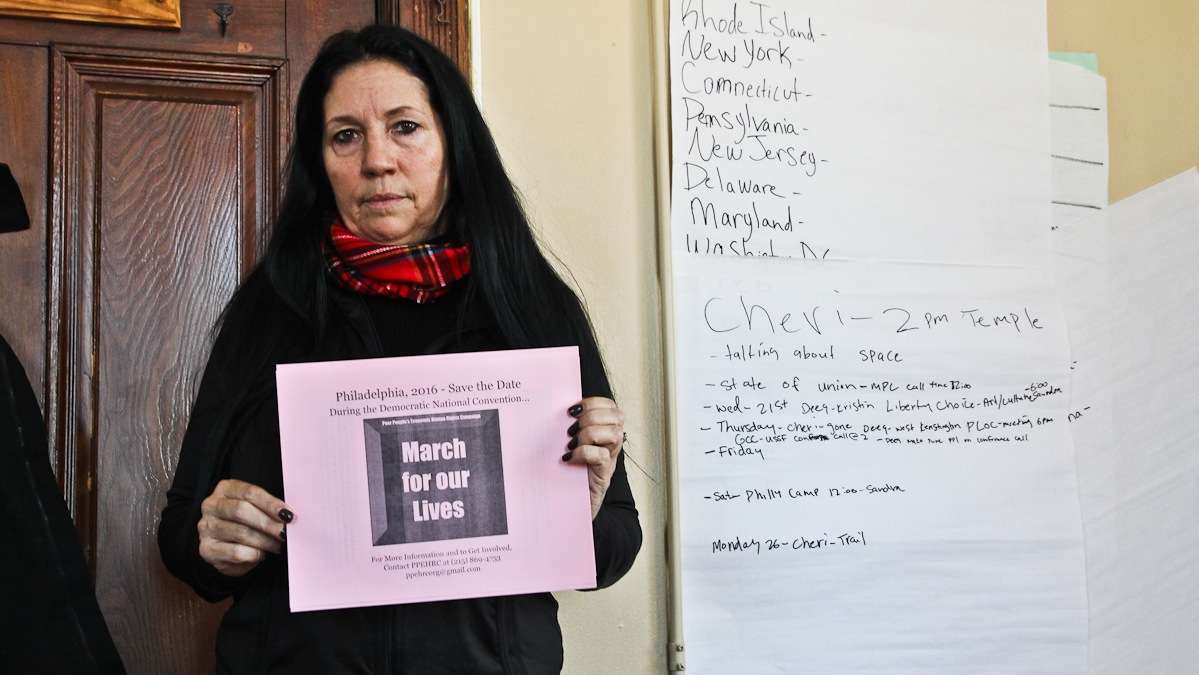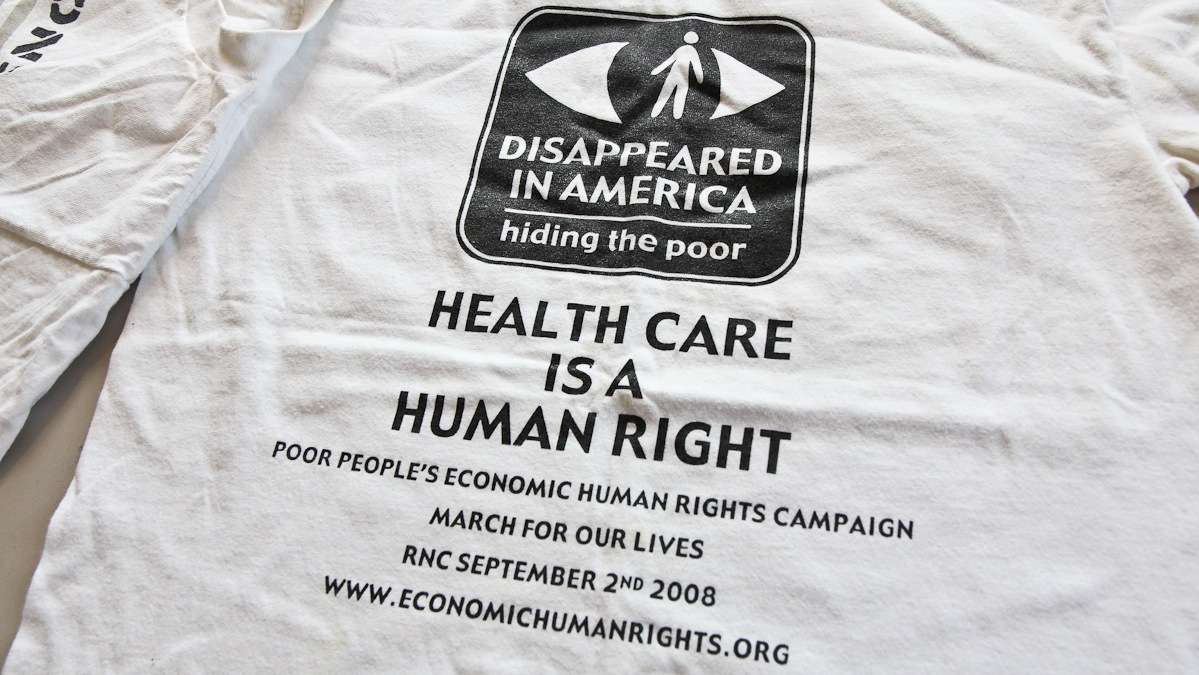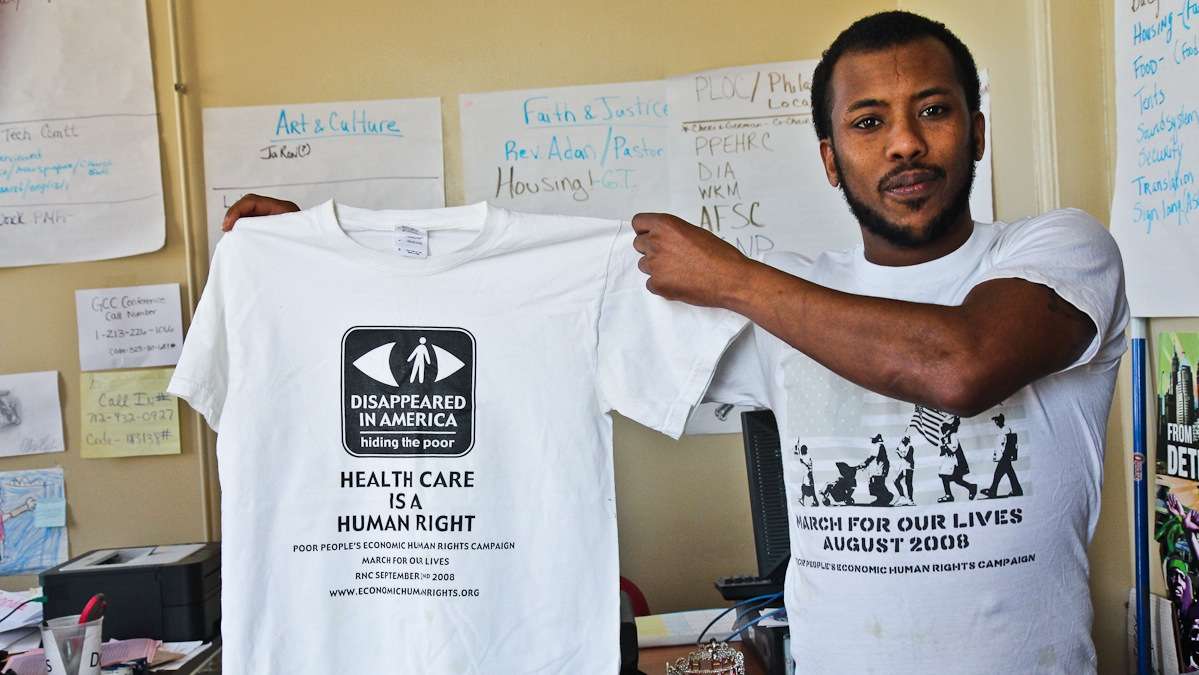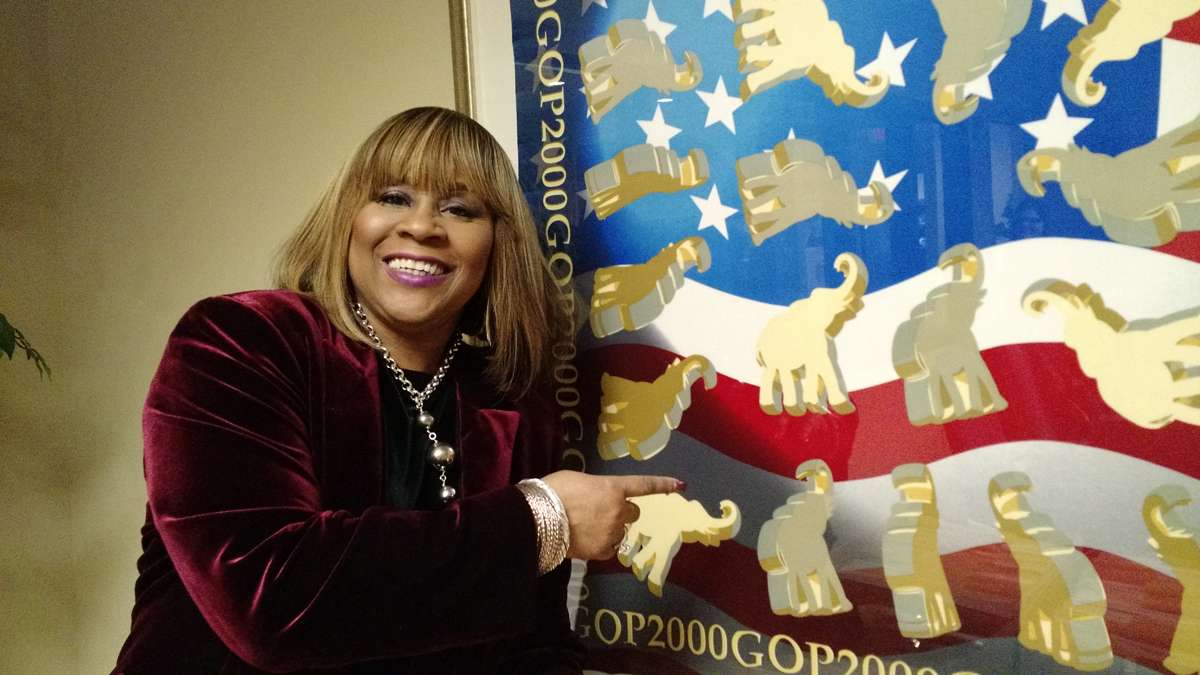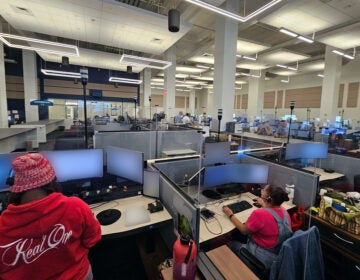With eyes toward hosting Democrats in 2016, looking back at Philly’s last convention
ListenThe last time Philadelphia played host to a national political convention, gas was about $1.20 a gallon, Santana was at the top of the billboard charts and Allen Iverson was putting up all-star numbers for the 76ers.
Yes, it was 2000 when Republicans brought their big party to the city, and thousands of protesters tried to crash it.
The convention backed George W. Bush’s first bid for the White House and it brought some interesting guests, including World Wrestling Federation champion Dwayne Johnson, better known as “The Rock,” to what was then known as the First Union Center in South Philadelphia.
Renee Amoore, deputy chair of the Republican Party of Pennsylvania remembers doing the “roll-call,” the moment when each state reports the number of votes for each candidate, in front of thousands of people.
“Wow, that’s all I can say,” Amoore said to describe it.
Amoore said the RNC was an opportunity to show off Philadelphia to visiting delegates the throngs of national and international media who were apprehensive about the city’s gritty reputation.
Former mayor Ed Rendell had lobbied hard to get the convention and the Democrat tried to show the city’s better side to the GOP, even though by the time the Republicans arrived John Street was mayor.
Preparations included clearing homeless people from SEPTA stations, spray-painting the lawn of the art museum green and even moving strip clubs off of Admiral Wilson Boulevard as it leads to the Ben Franklin Bridge in Camden.
Amoore helped organize bus tours of neighborhoods and historical sites to show visitors a different side to the city.
“We sold the city. They saw more of the history,” she said. “They didn’t see any violence. They didn’t see gangs. They didn’t see any of that.”
But they did see thousands of protesters, bolstered by anti-globalization demonstrations that took over Seattle the year before.
Longtime activist Cheri Honkala from the Kensington neighborhood helped organize a march on Broad Street during the convention’s opening day in late July.
“My jeans were sticking to me, my shirt was sticking to me, I was sweating bullets,” she remembered. “We got on a bullhorn and then we began to talk and chant that they can’t hide the poor… and I was absolutely terrified.”
Honkala says she was afraid of the heavy police presence — cops on horses and bikes, blocking demonstrators from getting too close to convention events.
Tensions between police and protesters rose to a fever pitch on August 1st, the second day of the convention. State troopers raided a warehouse in West Philadelphia where protesters were building giant papier-mâché puppets to use in their demonstrations.
Hundreds of people were arrested that week, some just for using cell phones (officers called the phones instruments of crime) and activists later sued the city for violating their First Amendment rights. Most of those arrested were ultimately cleared of their charges and those who sued settled with the city.
“The settlements were fairly modest and all of them were under gag orders, so its not clear in every situation in every lawsuit how much the city settled for,” said Activist Kris Hermes who has written a book about the ensuing court cases to be published in July.
Fifteen years later, boosters say Philadelphia has even more to offer visiting delegates, including revamped riverfronts and a vibrant restaurant scene, and in a post-9/11 world, the city is even better prepared to deal with crowds and keep attendees safe.
“The PPD [Philadelphia Police Department] is a highly trained group of professionals with significant experience and institutional memory of how to manage and balance the needs of protesters and those who are holding events,” said Mark McDonald, a spokesman for Mayor Michael Nutter, in an email.
As for the protesters? Honkala promises they’ll be back in 2016, too.
“The issues are much worse now,” she said. “Back then, we could still fight for some kind of reforms. Right now, literally the people, the planet and peace are all in jeopardy.”
WHYY is your source for fact-based, in-depth journalism and information. As a nonprofit organization, we rely on financial support from readers like you. Please give today.


